Lcd companion boards support (VKLCD50RTA & VKLCD70RT)
What is this ?
This is a demo program using Renesas RGA library & USB Camera to demonstrate VK-RZ/A1H's companion boards workability.
Supported companion Boards:
VKLCD50RTA
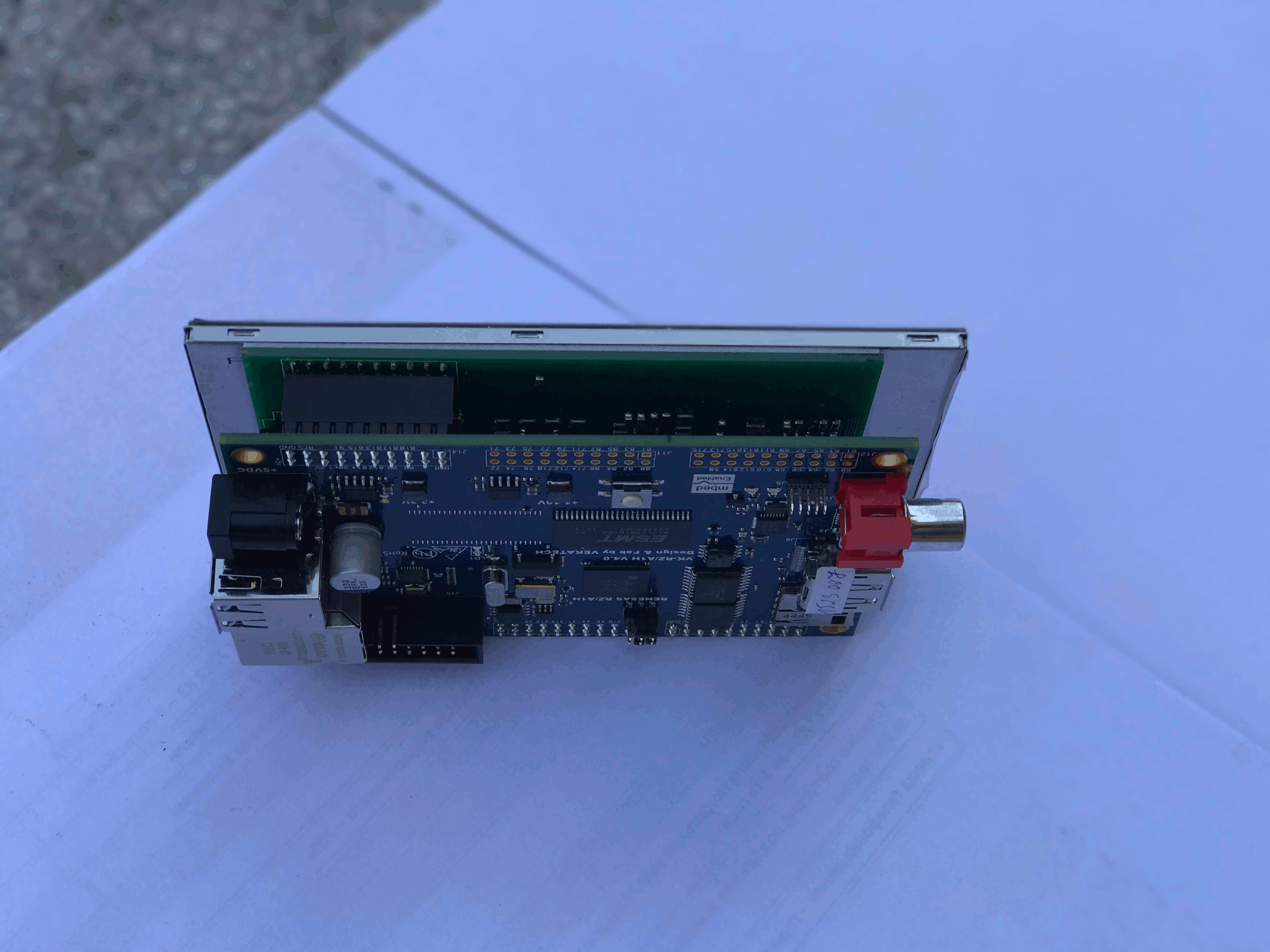
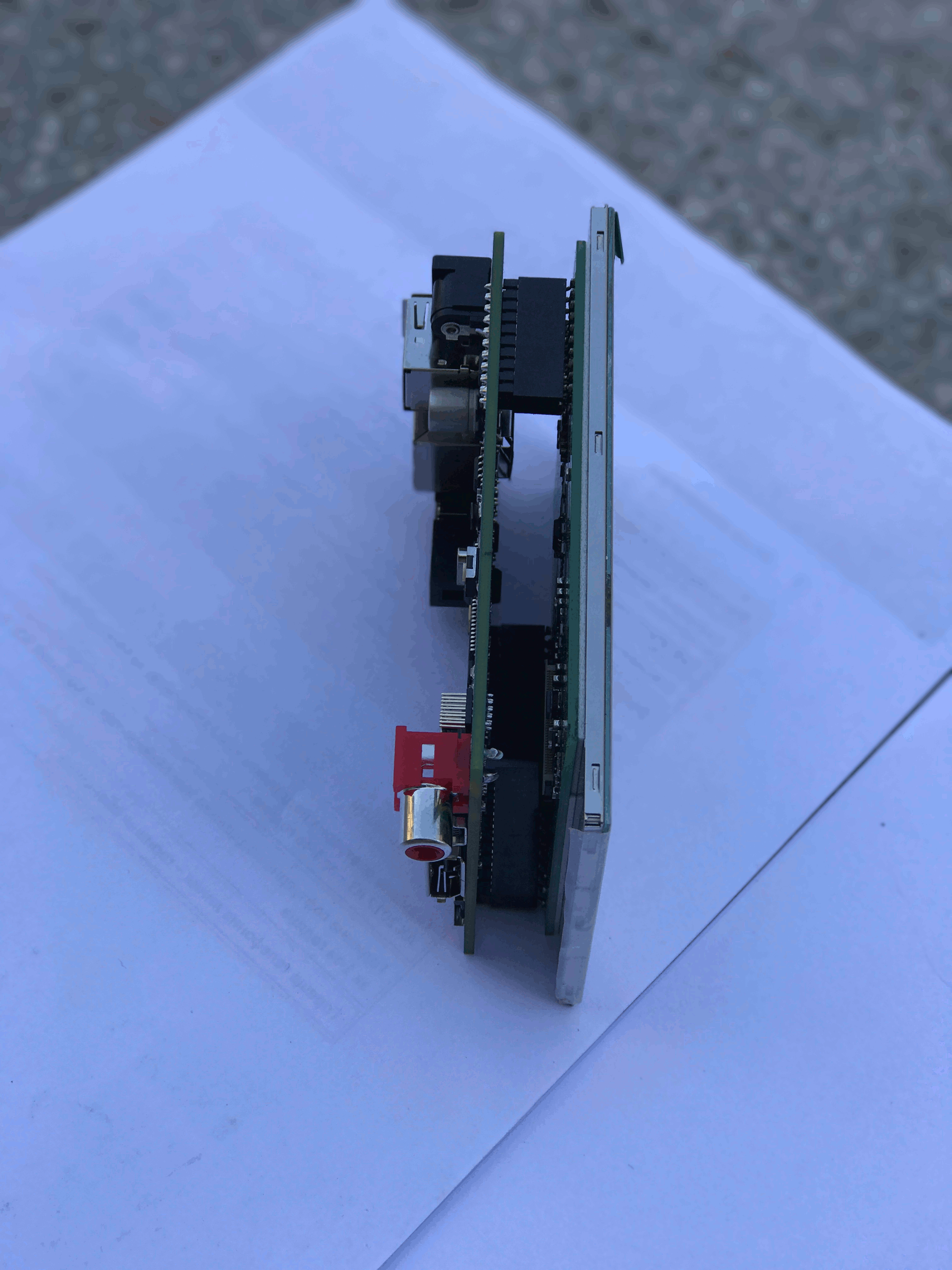
VKLCD70RT
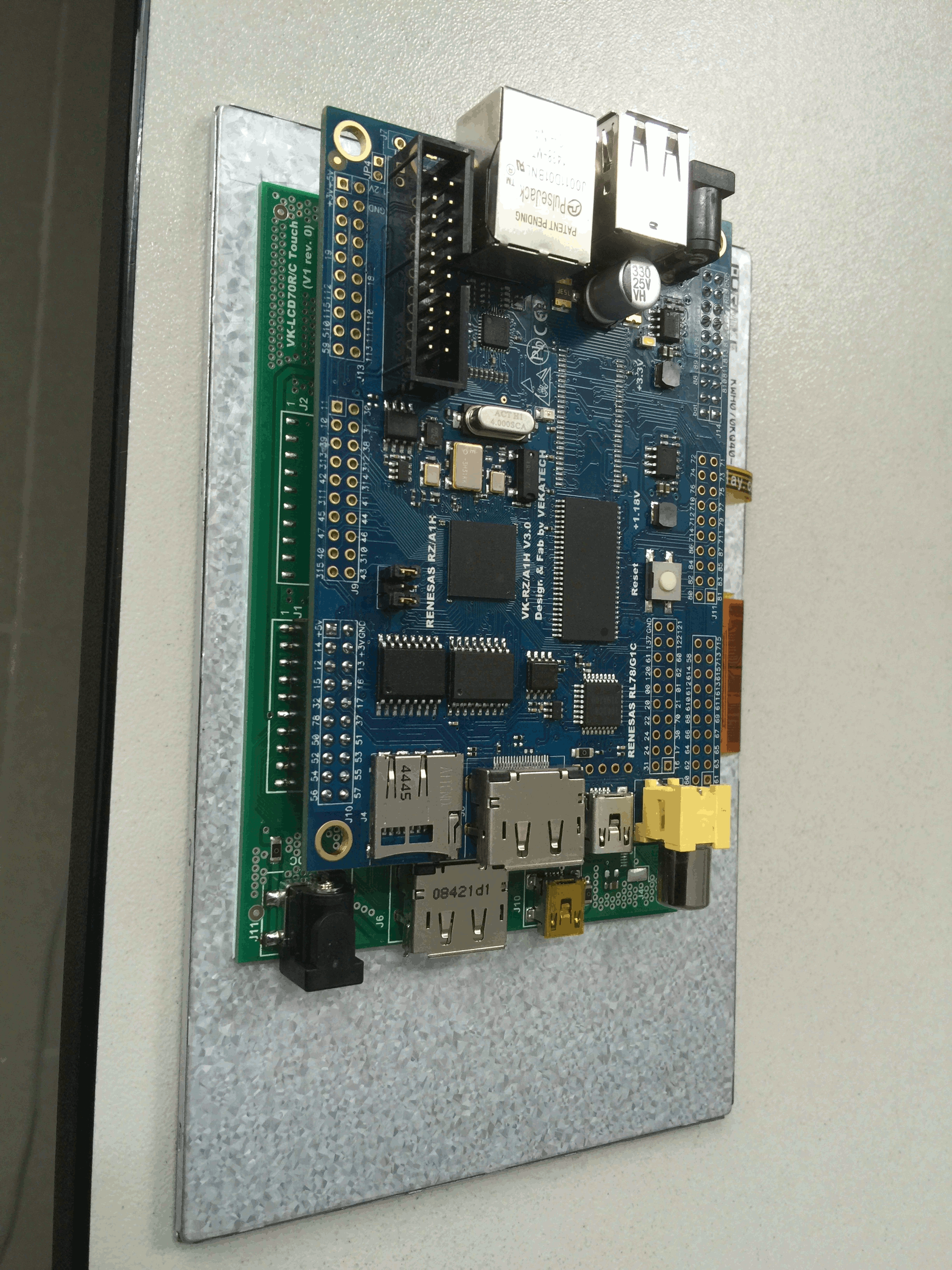
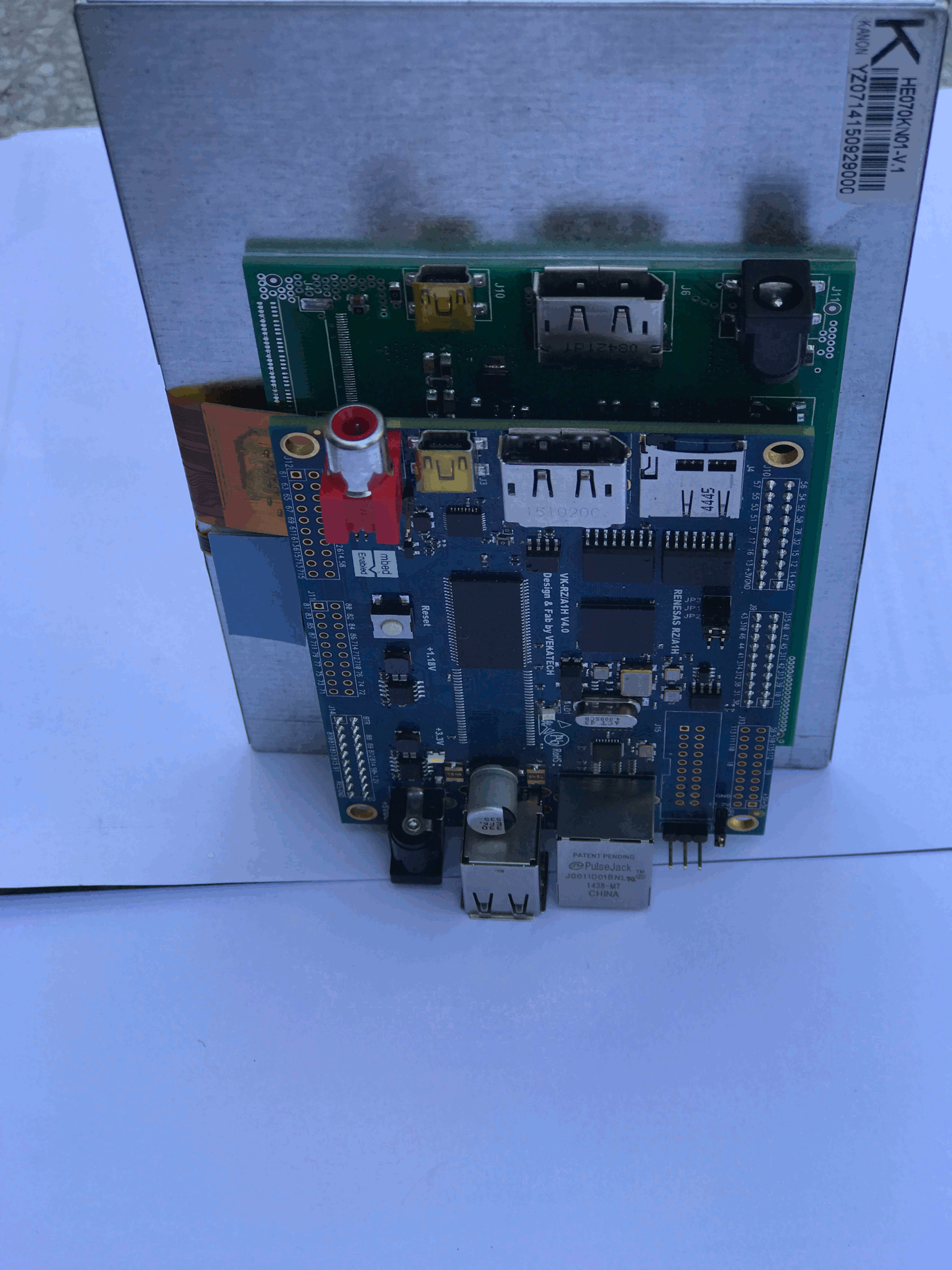
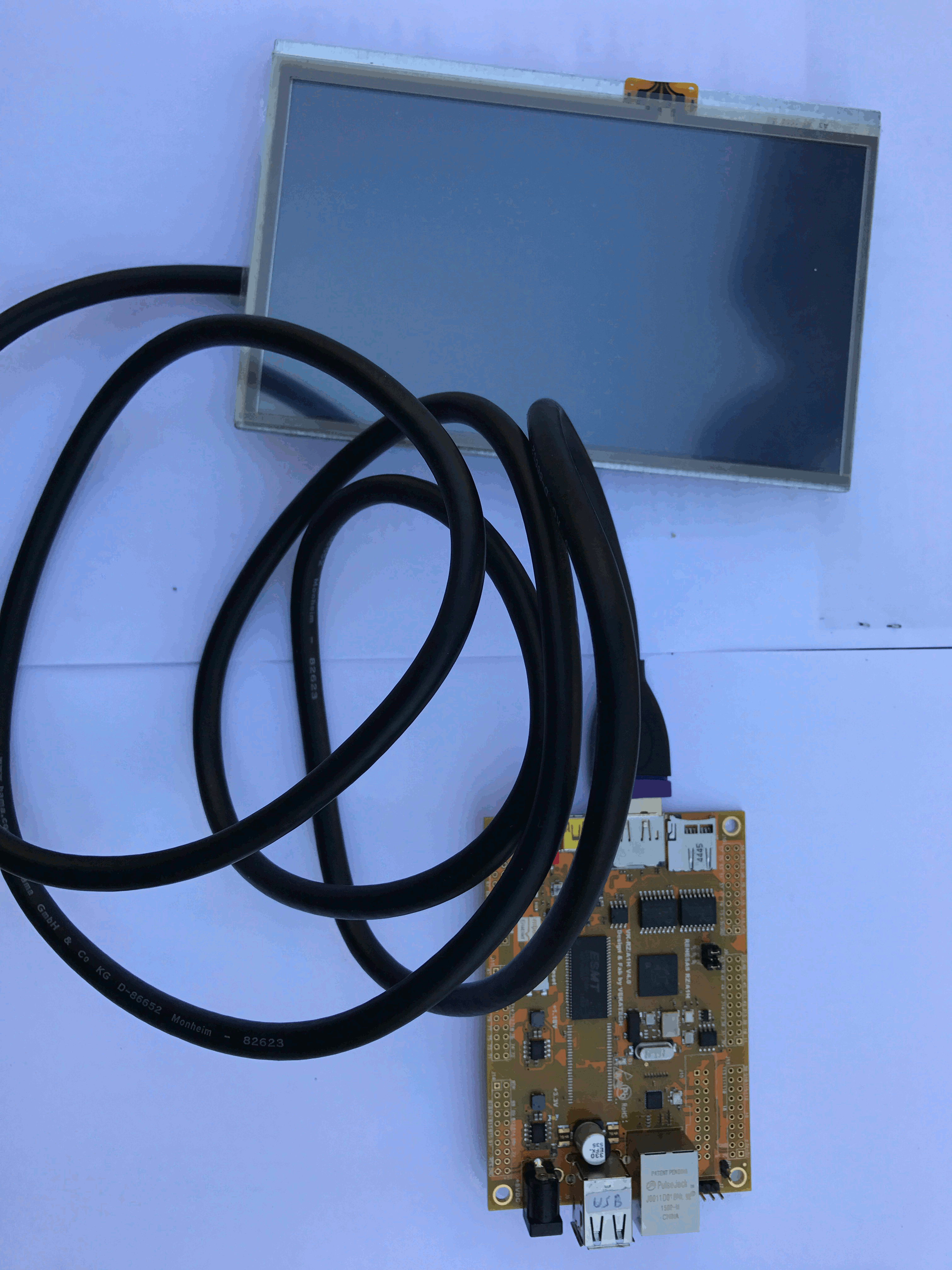
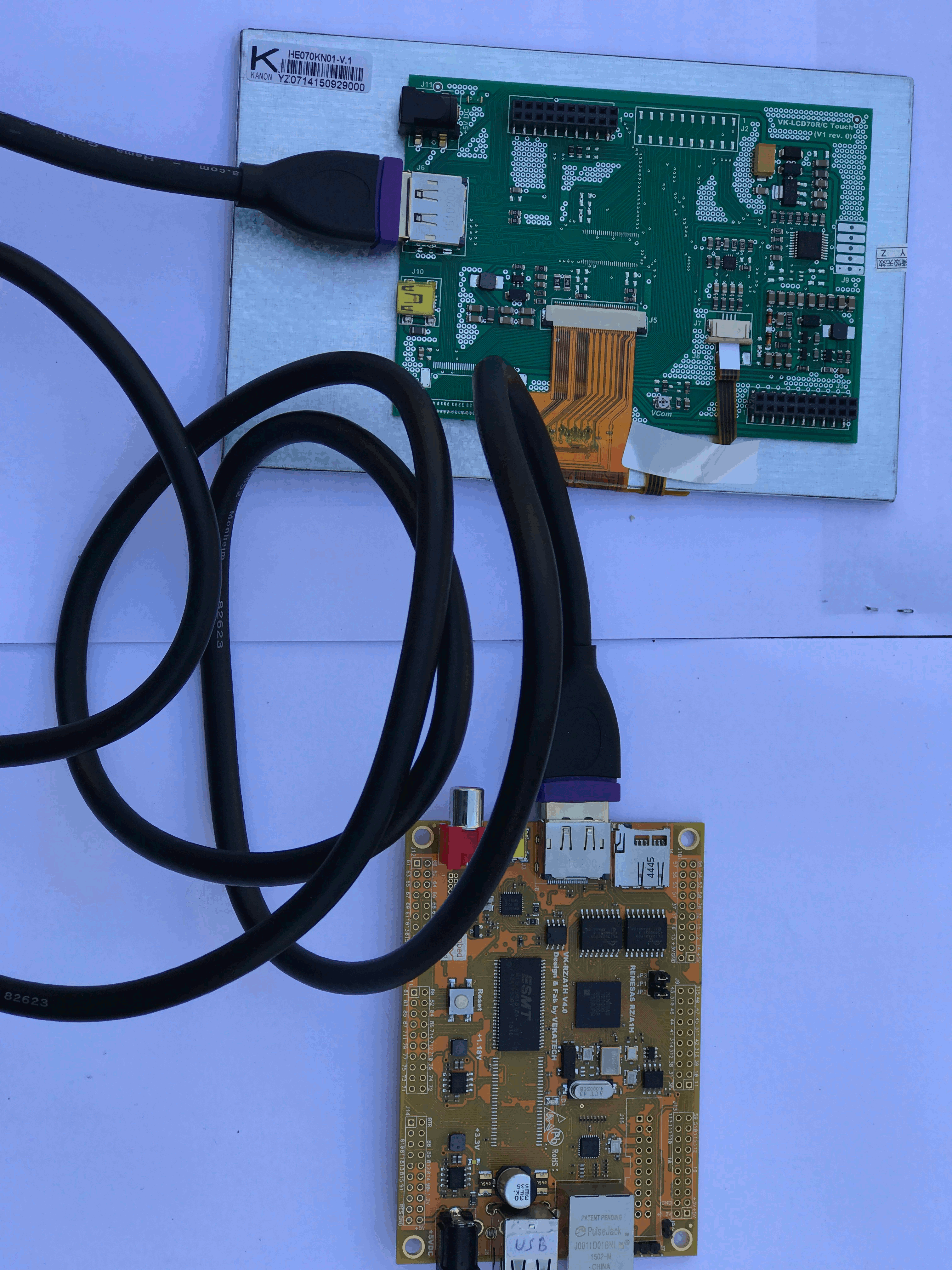
How to Configure ?
You can choose which display is installed by altering the lcd_panel.h file
Leave the active one & comment out the others:
#define LCD_VDC5_CH0_PANEL LCD_CH0_PANEL_VKLCD50RTA //#define LCD_VDC5_CH0_PANEL LCD_CH0_PANEL_VKLCD70RT
You can alter the whole demo with your pictures if you like:
How to compile ?
- The Demo can be compiled in 3 modes:
- I. Execution from the internal 10-MB on-chip SRAM.
- II. Execution from the on-board serial FALSH in dual (32-MB) mode.
- After import in the online compiler just leave only the VKRZA1H_DOUBLE.sct & delete all others linker files in the TOOLCHAIN_ARM_STD folder.
- Drag & drop the result binary in MBED disk, (previously inited in double flash mode)
- III. Execution from the on-board serial FALSH in single (16-MB) mode.
- After import in the online compiler just leave only the VKRZA1H_SINGLE.sct & delete all others linker files in the TOOLCHAIN_ARM_STD folder.
- Drag & drop the result binary in MBED disk, (previously inited in single flash mode )
Quick presentation:
Other demos ?
More demos you can find on our FTP
USB/uvc/BaseUvc.cpp
- Committer:
- tvendov
- Date:
- 2017-02-16
- Revision:
- 0:6435b67ad23c
File content as of revision 0:6435b67ad23c:
// BaseUvc.cpp
#include "USBHostConf.h"
#include "USBHost.h"
#include "USBIsochronous.h"
#include "BaseUvc.h"
void BaseUvc::poll(int millisec)
{
HCITD* itd = m_isoEp->isochronousReceive(millisec);
if (itd) {
uint8_t cc = itd->ConditionCode();
report_cc_count[cc]++;
if (cc == 0) {
uint16_t frame = itd->StartingFrame();
int fc = itd->FrameCount();
uint8_t* buf = const_cast<uint8_t*>(itd->buf);
int mps = m_isoEp->m_PacketSize;
for(int i = 0; i < fc; i++) {
uint16_t psw = itd->OffsetPSW[i];
cc = psw>>12;
if (cc == 0 || cc == 9) {
int len = psw & 0x7ff;
onResult(frame, buf, len);
}
report_ps_cc_count[cc]++;
buf += mps;
frame++;
}
}
delete itd;
}
}
USB_TYPE BaseUvc::Control(int req, int cs, int index, uint8_t* buf, int size)
{
if (req == SET_CUR) {
return host->controlWrite(dev,
USB_HOST_TO_DEVICE | USB_REQUEST_TYPE_CLASS | USB_RECIPIENT_INTERFACE,
req, cs<<8, index, buf, size);
}
return host->controlRead(dev,
USB_DEVICE_TO_HOST | USB_REQUEST_TYPE_CLASS | USB_RECIPIENT_INTERFACE,
req, cs<<8, index, buf, size);
}
USB_TYPE BaseUvc::setInterfaceAlternate(uint8_t intf, uint8_t alt)
{
return host->controlWrite(dev, USB_HOST_TO_DEVICE | USB_RECIPIENT_INTERFACE,
SET_INTERFACE, alt, intf, NULL, 0);
}
void BaseUvc::onResult(uint16_t frame, uint8_t* buf, int len)
{
if(m_pCbItem && m_pCbMeth)
(m_pCbItem->*m_pCbMeth)(frame, buf, len);
else if(m_pCb)
m_pCb(frame, buf, len);
}
void BaseUvc::setOnResult( void (*pMethod)(uint16_t, uint8_t*, int) )
{
m_pCb = pMethod;
m_pCbItem = NULL;
m_pCbMeth = NULL;
}
void BaseUvc::clearOnResult()
{
m_pCb = NULL;
m_pCbItem = NULL;
m_pCbMeth = NULL;
}